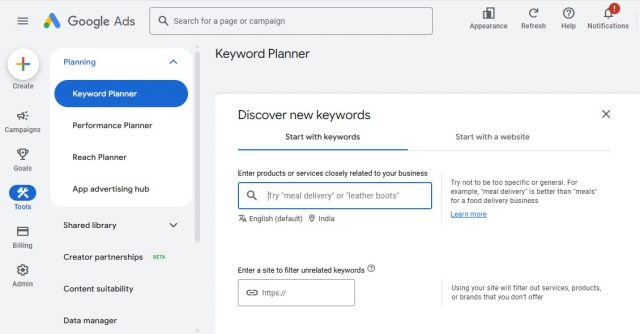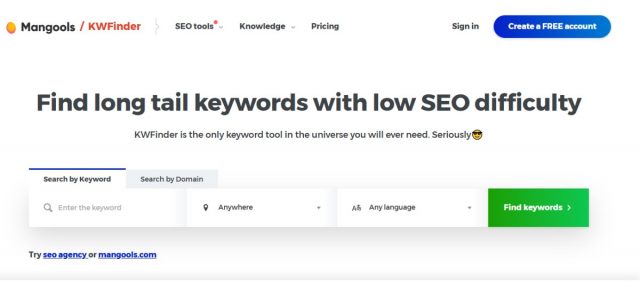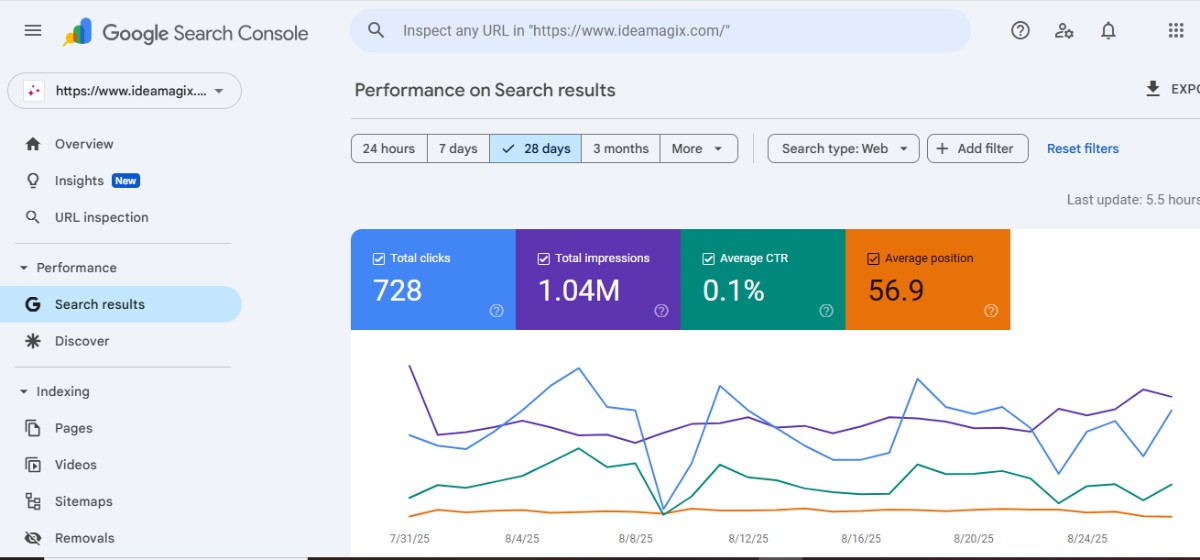
Introduction: The Foundation of SEO Success
Every successful SEO campaign starts with a simple but critical question:
Which keywords should you target?
In 2025, 68% of online experiences begin with search. Even more striking, 53% of all website traffic comes from organic search. This means if your business doesn’t show up on the first page of Google, you’re missing out on half of your potential customers.
The challenge? Most businesses waste up to 60% of their SEO budget chasing the wrong keywords. They either target terms that are too competitive, irrelevant to their audience, or don’t convert into leads or sales.
This blog solves that problem.
We’ll show you exactly how to do SEO keyword research for free, step by step. No expensive Ahrefs or SEMrush subscriptions required. Instead, you’ll discover:
- 7 free tools every SEO pro secretly uses.
- 3 keyword templates that simplify tracking and mapping.
- 15+ techniques to uncover hidden opportunities.
- Real-world applications for small businesses, e-commerce, and agencies.
By the end, you’ll have a ready-to-use keyword research system that helps you find profitable terms without spending a single rupee.
What Is Keyword Research and Why Does It Matter
Keyword research is the process of discovering the exact words and phrases your potential customers type into Google. It’s not just about traffic, it’s about relevance.
Think of SEO as a 4-pillar system:
- Technical optimization (making your site crawlable).
- Keyword research (choosing what to target).
- Content creation (writing articles, service pages, product descriptions).
- Link building (building authority).
Keyword research is the foundation. If you pick the wrong keywords, the other three pillars collapse.
For example, targeting a broad keyword like “SEO” may bring traffic, but those visitors may not convert. Targeting “affordable SEO agency in Mumbai” is far more likely to drive leads.
Types of Keywords You Need to Know
When learning how to do keyword research in SEO, it’s important to understand keyword types:
- Short-tail keywords (1–2 words): High search volume, high competition.
Example: “SEO” or “digital marketing.” - Long-tail keywords (3–5+ words): Lower volume, but higher conversion rates.Example: “How to do SEO keyword research for free.”
- LSI keywords (Latent Semantic Indexing): Related terms Google uses to understand context.Example: If your keyword is “keyword research,” LSI terms might include “search intent,” “Google Keyword Planner,” and “long-tail keywords.”
- Branded vs. Non-Branded: “Ideamagix SEO services” (branded) vs. “best SEO company in Mumbai” (non-branded).
Understanding Search Intent
Not all keywords are equal. Google now prioritizes intent, the reason behind the search. In 2025, based on industry research, user intent falls into 5 categories:
- Informational (80% of searches): “How to do keyword research in SEO.”
- Navigational: “Google Keyword Planner login.”
- Commercial Investigation: “best keyword research tools 2025.”
- Transactional: “Buy SEO course online.”
- Local: “SEO agency in Mumbai near me.”
- If you target informational keywords, create blogs or guides.
- For transactional, create service/product pages.
- For local intent, optimize your Google My Business SEO keywords.
By aligning your content with intent, you not only rank higher but also convert better.
Free Keyword Research Tools Arsenal
When learning how to do SEO keyword research step by step, the first question most people ask is: Which tools should I use?
The good news: you don’t need to spend ₹10,000+ per month on premium tools.
Here are 7 free keyword research tools every SEO agency (including the best SEO company in Mumbai) still uses in 2025.
Tool #1: Google Keyword Planner The Foundation
Why it matters: This is Google’s own keyword tool, so the data is as accurate as it gets.
- Access: Requires a Google Ads account (free setup).
- Strengths: Search volumes straight from Google, keyword variations, and CPC (useful for understanding keyword value).
Step-by-step tutorial:
- Go to Google Ads and create a free account.
- In the dashboard, navigate to Tools & Settings → Keyword Planner.
- Choose Discover New Keywords.
- Enter your seed keyword (e.g., “SEO services”).
- Filter results by location (e.g., Mumbai, India).
- Export the keyword list to Google Sheets or Excel.
Pro Tip: Always use Exact Match volumes rather than broad ranges for better precision.
Example: Searching “affordable SEO agency in Mumbai” may show you 90–150 searches/month. That’s highly valuable for local targeting.
Tool #2: AnswerThePublic Question Mining
Why it matters: Great for generating long-tail and question-based keywords that match how users actually search.
- What it does: Visualizes search queries people type into Google.
- 2025 update: Requires free account creation, but still very useful.
Step-by-step tutorial:
- Go to AnswerThePublic.
- Create a free account.
- Enter your seed keyword, like “keyword research”.
- Select country + language (India/English).
- Switch to the Data tab instead of visuals (easier to copy/export).
- Download CSV results.
Pro Tip: Use this tool to create FAQ sections or blog post ideas.
Example: Entering “SEO agency in Mumbai” shows questions like:
- “Which is the best SEO company in Mumbai?”
- “How much does SEO cost in Mumbai?”
Both are perfect blog titles or service page H2s.
Tool #3: Google Search Console Hidden Gem
Why it matters: Unlike other tools, this shows real data from your website.
- Access: Requires your site to be verified in Google Search Console.
- Power: Reveals what keywords you already rank for, including hidden opportunities.
Step-by-step tutorial:
- Go to Google Search Console.
- Open the Performance → Search Results report.
- Set the date range to last 12 months.
- Export keywords to Google Sheets.
- Look for keywords with:
-
- High impressions but low clicks (optimize meta titles).
- Positions 11–20 (easy to push to page 1).
📌 Example: If you rank #14 for “affordable SEO services in Mumbai” with 2,000 impressions, that’s a quick win keyword.
Tool #4: Ubersuggest Neil Patel’s Free Tool
Why it matters: Provides SEO difficulty scores and content ideas.
- Free limits: 3 searches per day (per account).
- Features: Shows keyword suggestions, volume, SEO difficulty, and backlinks data.
Step-by-step tutorial:
- Visit Ubersuggest.
- Enter a seed keyword (e.g., “SEO keyword research”).
- Filter by country (India).
- Review search volume, CPC, and SEO difficulty.
- Export the top 100 keywords.
Example: Searching “SEO agency in Mumbai” shows related terms like “SEO services in Mumbai price,” a perfect service page angle.
Tool #5: KWFinder (Free Version)
Why it matters: Great for finding low-competition keywords.
- Free limits: 5 searches per day.
- Unique feature: “Keyword Opportunity Score” helps prioritize easier terms.
Step-by-step tutorial:
- Go to KWFinder.
- Enter your keyword.
- View search volume + difficulty scores.
- Check the SERP overview for the top 10 competitors.
Example: If “best SEO services in Mumbai” shows weak competitors (low DA websites), it’s an opportunity.
Tool #6: Free Alternatives
- Keyword Tool.io – Generates 750+ long-tail suggestions from Google Autocomplete.
- WordStream Free Tool – Pulls data from Google + Bing.
- Soovle – Shows suggestions across platforms (Google, Bing, YouTube, Amazon, Wikipedia).
These are great when brainstorming content cluster ideas.
Tool #7: Google Autocomplete & Related Searches
Why it matters: The simplest and most underestimated free tool.
- Start typing a keyword in Google, but don’t hit enter.
- Google will suggest related searches (autocomplete).
- Scroll down the SERP for “Related Searches” and “People Also Ask.”
Example: Typing “how to do keyword research” might show:
- “How to do keyword research in SEO step by step”
- “How to do keyword analysis in SEO”
Both can become blog subheadings.
Advanced Free Techniques for Smarter Keyword Research
Free tools are powerful, but the real magic comes when you combine them with manual techniques. These strategies help you find hidden opportunities your competitors often miss.
Competitor Analysis Without Paid Tools
Most people think you need Ahrefs or SEMrush to analyze competitors. That’s not true. You can do a lot manually.
Steps:
- Search manually – Enter your target keyword in Google.
- Review top 10 results – Note down recurring terms in titles and meta descriptions.
- Check H1s/H2s – Inspect page structure for keyword usage.
- Look for gaps – If competitors don’t answer key questions, that’s your chance.
Example: Searching “best SEO services in Mumbai” shows many agencies, but few explain pricing breakdowns. That’s a content gap you can fill.
Free competitor tools:
- Competitors.app (free version) – Suggests overlapping keywords.
- SimilarWeb free insights – Traffic sources & top ranking pages.
Search Console Data Mining Techniques
Search Console is a goldmine beyond just impressions and clicks.
- Filter by page: See keywords specific to a single landing page.
- Year-over-year comparisons: Spot seasonal keywords (e.g., “Diwali offers SEO”).
- CTR optimization: Find keywords with high impressions but <2% CTR—fix meta titles and descriptions.
Example: If “affordable SEO services in Mumbai” has 50,000 impressions but only 400 clicks, updating the title to “Affordable SEO Services in Mumbai | Starting ₹7,999” could double CTR.
Content Gap Analysis (Without Paid Tools)
You don’t need SEMrush for content gap research.
Steps:
- Pick your top 3 competitors.
- Check their blog/service pages.
- Note keywords/topics they cover that you don’t.
- Use free tools (Keyword Planner + AnswerThePublic) to expand.
Example: If competitors have “local SEO for restaurants in Mumbai” and you don’t, that’s a missing opportunity.
Step-by-Step Keyword Research Process (SEO Keyword Research Step by Step)
Here’s a full workflow anyone can follow using only free tools.
Phase 1: Business Foundation (20 minutes)
Before you touch any tool, you need clarity.
- Define goals: Do you want more traffic, leads, or sales?
- Identify target audience: Small business owners in Mumbai? E-commerce shoppers?
- List 5–10 seed keywords: Start broad. Example: “SEO services,” “keyword research,” “digital marketing.”
Phase 2: Keyword Discovery (45 minutes)
Now use free tools to expand your list.
Google Keyword Planner:
- Enter your seed keywords.
- Export 100+ related terms.
- Filter by location (India/Mumbai).
AnswerThePublic:
- Run each seed keyword.
- Export all questions and prepositions.
- These make great blog titles and FAQ sections.
Google Search Console:
- Export the past 12 months of queries.
- Highlight terms ranking positions 11–20 (easy ranking wins).
Example Output:
- SEO services Mumbai (transactional)
- How to do keyword analysis in SEO (informational)
- Best SEO company in Mumbai (commercial)
Phase 3: Keyword Analysis & Filtering (30 minutes)
You’ll now reduce your giant list into high-value keywords.
- Check search volume: Don’t only chase 10k+ terms. Mix medium + long-tail.
- Check competition: Use KWFinder or Ubersuggest for SEO difficulty scores.
- Match search intent:
-
- Informational → Blog posts (guides, how-tos)
- Commercial → Service pages
- Transactional → Product pages
- Local → GMB/landing pages
Example:
- “How to do keyword research for SEO” → Blog post
- “affordable SEO agency in Mumbai” → Service page
- “SEO pricing Mumbai” → Pricing/landing page
Phase 4: Keyword Organization (25 minutes)
Now group and assign keywords.
1. Group by intent:
- Blog content → “How to do SEO keyword research steps by step”
- Service pages → “affordable SEO services in Mumbai”
- Local SEO → “SEO agency in Mumbai near me”
2. Create topic clusters: One main keyword + supporting long-tail terms.
3. Assign to content type:
- Service page → “Best SEO services in Mumbai”
- Blog post → “How to do keyword analysis in SEO”
- FAQ → “What is SEO keyword research?”
Final Output Example:
| Keyword | Search Intent | Content Type | Target Page |
| how to do keyword research for SEO | Informational | Blog Post | /blog/how-to-do-keyword-research |
| affordable SEO agency in Mumbai | Commercial | Service Page | /seo-services-mumbai |
| best SEO company in Mumbai | Commercial | Landing Page | /seo-company-mumbai |
| seo keyword research step by step | Informational | Blog Post | /blog/seo-keyword-research-guide |
Free Keyword Mapping Templates
A keyword research process is incomplete without proper mapping. Keyword mapping helps assign the right keywords to the right pages, avoiding duplication and improving topical authority.
Template #1: Basic Keyword Mapping Spreadsheet
| Keyword | Search Volume | Difficulty | Intent | Target URL | Content Type | Secondary Keywords | Notes |
| affordable SEO agency in Mumbai | 2,400 | Medium | Commercial | /seo-services-mumbai | Service Page | best SEO services in Mumbai, SEO company in Mumbai | Highlight affordability + case studies |
| how to do SEO keyword research | 8,100 | Low | Informational | /blog/keyword-research-guide | Blog Post | How to keyword research for SEO, SEO keyword research step by step | Add free template download |
| best SEO company in Mumbai | 5,600 | Medium | Commercial | /seo-company-mumbai | Landing Page | top SEO services Mumbai, affordable SEO services in Mumbai | Compare agencies with transparent pricing |
Best for beginners, simple to manage, covers all essentials.
Template #2: Advanced Intent-Based Mapping
This is for agencies or businesses running multi-stage funnels.
| Keyword | Volume | Intent | User Journey Stage | Format | Target Page | Internal Links | Competitors | Content Gap |
| seo keyword research step by step | 3,200 | Informational | Awareness | Blog Guide | /blog/seo-keyword-research-guide | Link to /seo-services-mumbai | HubSpot, Ahrefs | Add a free template |
| affordable SEO services in Mumbai | 2,100 | Commercial | Consideration | Service Page | /seo-services-mumbai | Link to case studies | Neil Patel, Upwork freelancers | Missing pricing breakdowns |
| best SEO company in Mumbai | 5,600 | Commercial | Decision | Landing Page | /seo-company-mumbai | Link to /contact-us | Brainvire, Ideamagix | Competitors lack local case studies |
Best for agencies to align keywords with funnel stages.
Template #3: Local SEO Keyword Template
Essential for local businesses (restaurants, clinics, agencies).
| Keyword | Local Modifier | Intent | Target URL | GMB Relevance | Local Competition | Action |
| seo agency in Mumbai near me | Mumbai, Near Me | Local/Commercial | /seo-services-mumbai | Yes | 10+ local listings | Optimize GMB with reviews |
| affordable SEO company in Mumbai | Mumbai | Commercial | /seo-company-mumbai | Yes | Medium | Add location schema |
| best seo services in Andheri, Mumbai | Andheri | Local | /seo-services-mumbai/andheri | Yes | Low | Create a local landing page |
Best for local SEO ties keywords to GMB + location pages.
Keyword Research for Different Business Types
Every business has a unique keyword strategy.
For Service Businesses (Agencies, Web Development)
- Focus: Commercial investigation keywords
- Examples: “best SEO company in Mumbai,” “affordable web design services in Mumbai”
- Strategy: Target local + service keywords with dedicated landing pages.
For E-commerce Stores
- Focus: Product keywords + transactional modifiers
- Examples: “buy yoga mats online,” “best smartphones under 20,000”
- Strategy: Create category pages optimized for long-tail product searches.
For Blogs / Content Sites
- Focus: Informational & question-based keywords
- Examples: “how to do keyword analysis in SEO,” “what is responsive web design”
- Strategy: Build pillar pages + clusters to cover entire topics.
Tracking and Measuring Keyword Research Success
Without tracking, keyword research is meaningless.
Key Metrics to Monitor
- Rankings → Track keywords moving from page 2 → page 1.
- Organic Traffic → Check GSC + GA4.
- CTR → Improve meta titles/descriptions for low CTR keywords.
- Conversions → See which keywords drive leads/sales.
Free Tools to Use
- Google Search Console → Ranking & impressions.
- Google Analytics 4 (GA4) → Traffic + conversions.
- SERP Free Rank Trackers → Daily/weekly keyword position monitoring.
Pro tip: Don’t just track rankings, track ROI keywords (those that bring leads).
Common Mistakes in Free Keyword Research
- Keyword Stuffing → Overusing keywords unnaturally.
✅ Solution: Keep density 1–2%, write for humans first. - Ignoring Intent → Using informational keywords on service pages. ✅ Solution: Match keyword type to content type.
- Chasing Only High-Volume Terms → Competing for impossible keywords. ✅ Solution: Balance with long-tail, local, and mid-volume terms.
2025 Keyword Research Trends
AI and Voice Search
- 50%+ queries are now conversational.
- Optimize for questions + natural phrases.
- Example: “How to do SEO keyword research step by step” instead of “SEO research.”
Search Behavior Shifts
- Mobile-first → 70% searches via mobile.
- Local search growth → Surge in “near me” queries.
- Visual search → Google Lens + Pinterest keywords emerging.
Action: Include voice-friendly, local, and visually friendly keywords in your list.
Conclusion & Action Steps
Keyword research doesn’t need expensive tools. With the step-by-step process above, plus free templates, you can create a strategy as effective as any paid solution.
Next Steps
- Pick 5–10 seed keywords.
- Run them through Google Keyword Planner + AnswerThePublic + GSC.
- Use templates to map them by intent.
- Start optimizing content page by page.
- Track performance monthly.
Pro Tip: Agencies like Ideamagix in Mumbai often use these exact free strategies before upgrading to premium tools. Small businesses can do the same.



